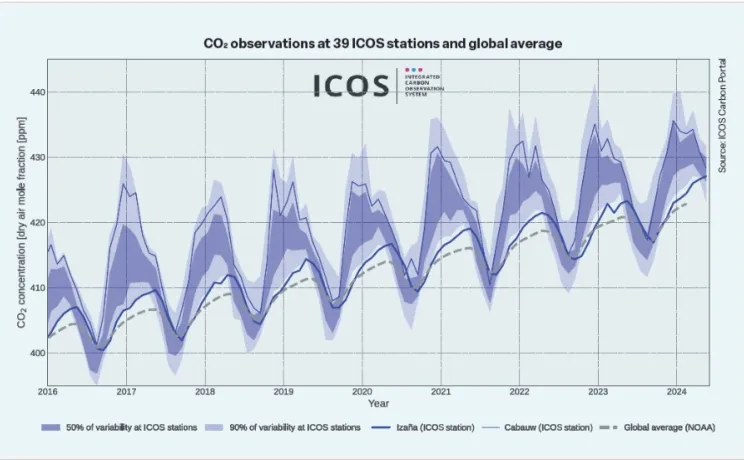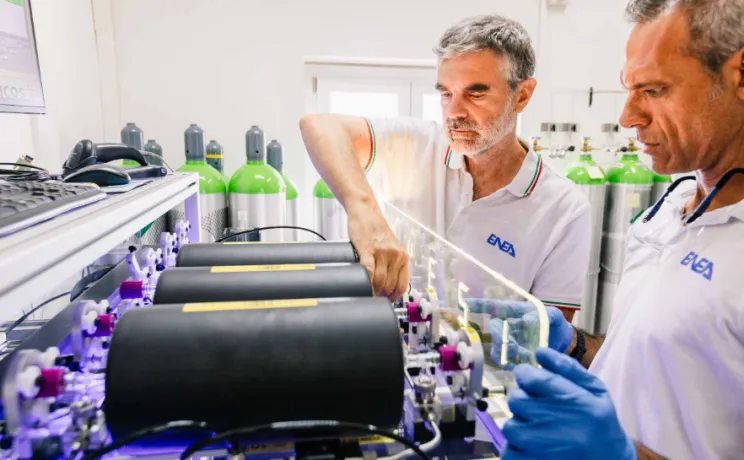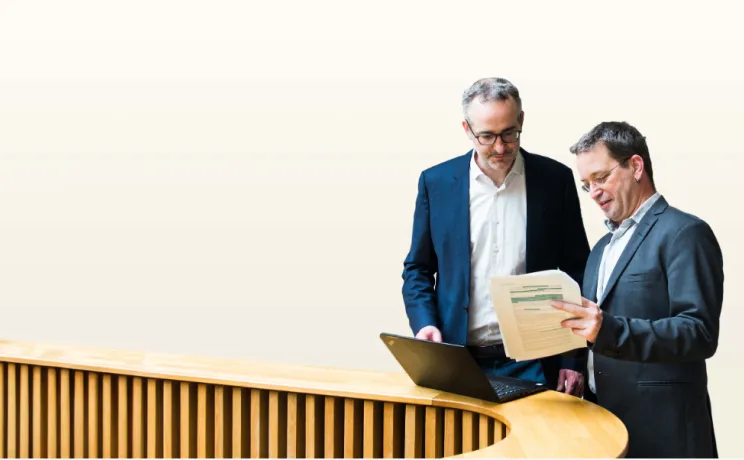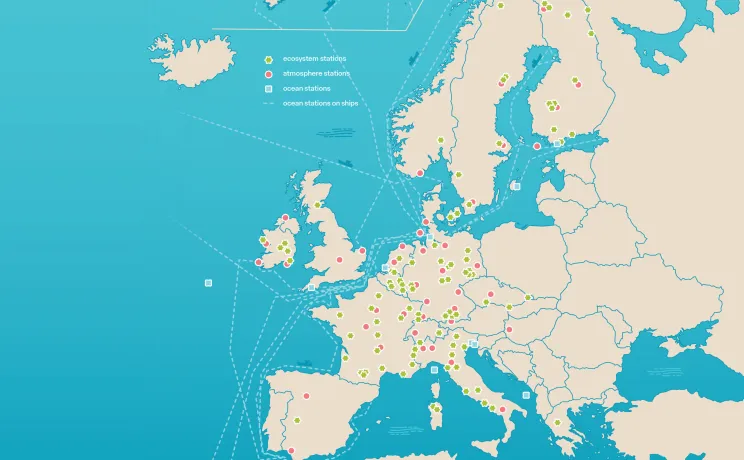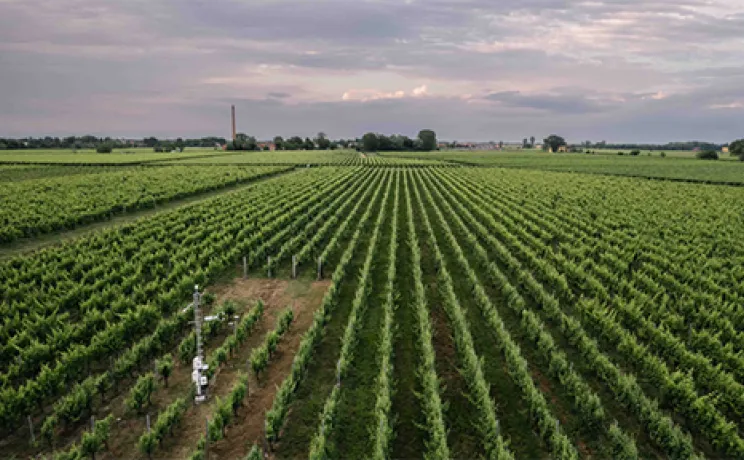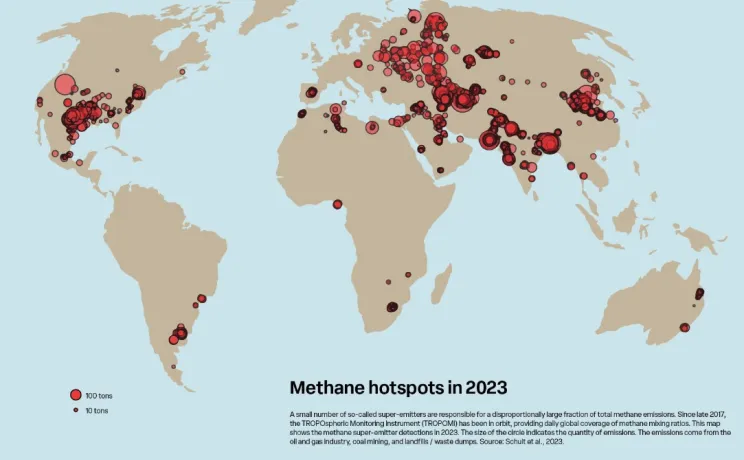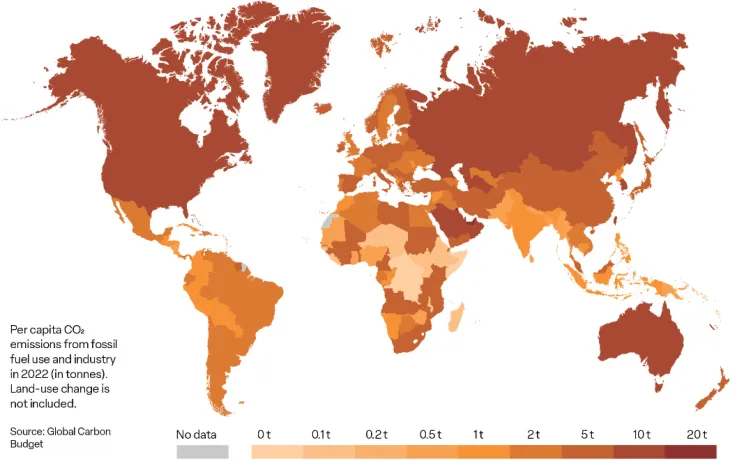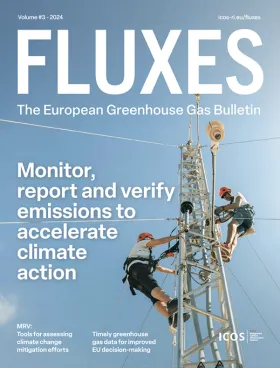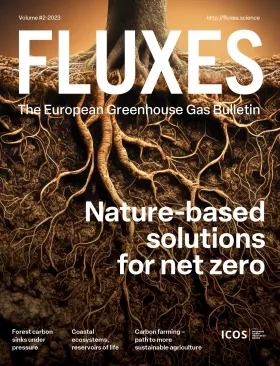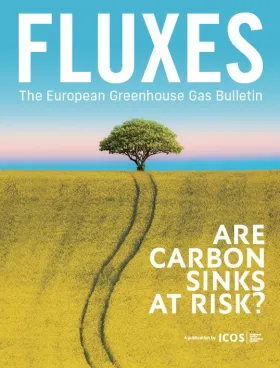Volume 3
We need to drastically reduce our greenhouse gas emissions to avoid the worst impacts of climate change. The latest issue of FLUXES, the European Greenhouse Gas Bulletin, by ICOS – sheds light on an essential tool to help decision-makers assess progress towards a net zero world: science-based Monitoring, Reporting and Verification (MRV) systems.
Monitoring refers to data and information regarding emissions.
Reporting is the act of compiling this information into inventories.
Verification points to independent assessment of the reported information to ensure accuracy.
MRV is already well established in the UNFCCC framework with the national inventories. However, complementing the inventories with MRV systems, informed by scientifically measured greenhouse gas data, increases the power to support societies in their climate action from the local to the global scale.
FLUXES is an annual publication by ICOS, the Integrated Carbon Observation System – a European Research Infrastructure. The aim is to highlight topical climate issues to policy advisers and climate journalists. The first volume was published in 2022.
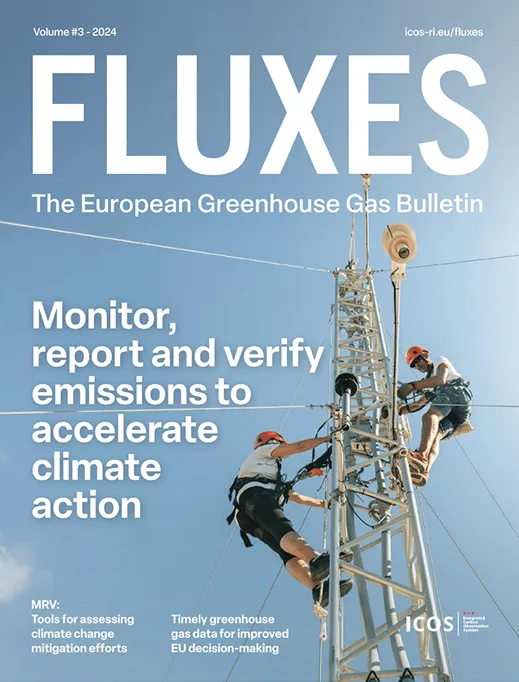
Almost weekly, we hear about floods, droughts, heat waves and the related loss and damage including public health emergencies. Climate change is progressing and the time to act is now.
The world needs to drastically reduce its greenhouse gas emissions to avoid the worst impacts of climate change. But how can we confidently measure the effectiveness of our efforts? Monitoring, Reporting and Verification (MRV) systems could provide the answer.
In the labyrinth of climate data, where every number tells a story, the national greenhouse gas inventories serve as an important information source for the Global Stocktake. The inventories typically rely on estimations, but ground-based measurements can contribute to the verification of these.
The fight against climate change calls for accurate data on greenhouse gas emissions. The ICOS network of observation stations, spread across diverse environments in Europe, addresses the challenge by providing near-real-time greenhouse gas data for research and climate models. This helps shed light on how human actions drive climate change.
Scientists across Europe are developing effective Monitoring, Reporting and Verification (MRV) systems, relying on high-quality data. New projects showcase tools to monitor emissions from human activities, and develop methods to monitor soil organic carbon under different local climate conditions and climate change scenarios.
Countries are looking at how to make a 30% reduction of methane a reality by 2030, focusing on the oil and gas sector. For instance, in the US, the Methane Emissions Reduction Program introduces a charge on methane emitted by certain oil and gas companies. This charge will apply to facilities emitting over 25,000 metric tons of CO2 equivalent every year and will start at $900 per metric ton reported in 2024.
The world stands at a crossroads in the battle against climate change. With the impacts of climate change already being felt around the world, we asked some of the leading EU negotiators to reflect on the first Global Stocktake process.
A global effort is under way to provide near real-time data on greenhouse gas concentrations covering all continents. Launching in 2028, the Global Greenhouse Gas Watch (G3W) initiative brings together a global network of satellite operators, surface-based observation systems and modelling expertise to gather the best existing knowledge and technology. In Europe, Copernicus and ICOS are providing the blueprints for the monitoring system.
All FLUXES volumes
Cities: from emission hotspots to climate action innovators
Volume 4, 2025
MRV: A critical tool for tracking emissions and accelerating climate action
Volume 3, 2024
Nature-based solutions for net zero
Volume 2, 2023
FLUXES vol 2 highlights the potential and limitations of nature-based solutions for carbon removals from a scientific perspective. FLUXES is an annual scientific publication addressing climate change related issues supporting European policy-makers.
Are carbon sinks at risk?
Volume 1, 2022
This inaugural edition of FLUXES explores how long-term observation data can answer questions such as:
Has there been an acceleration of the increase of greenhouse gases in the atmosphere?’
Has extreme weather in Europe influenced the carbon cycle of ecosystems and, consequently, changed their ability to store carbon?’



